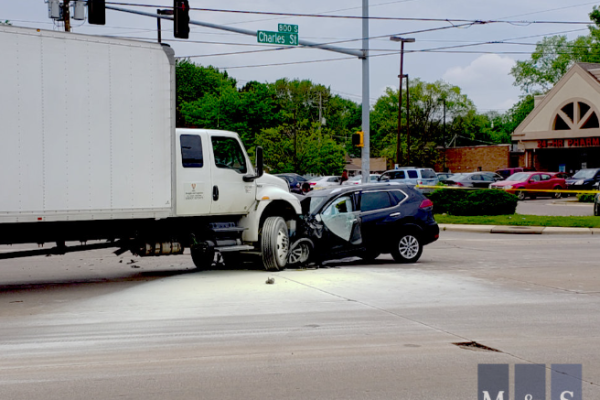Operator error has been the most significant contributing factor in boating accidents, and it’s responsible for far too many boating-related injuries and fatalities each year. Hence, it’s critical to know the most common operator errors that lead to these situations. When familiar with these operator errors, you can avoid them and keep yourself and others safe when on the water.
-
Inattention
While boating is a recreational activity that many people enjoy, it does have its share of risks. The US Coast Guard says inattention is the number one cause of boating accidents. Whether it’s failing to notice and react quickly enough when an accident occurs or falling victim to distractions such as daydreaming or reading while operating a boat, inattention can lead to severe injuries or death.
One common form of distraction is conversing with passengers while steering the boat without being alert for submerged obstacles or other vessels. It would help if you gave your full attention to navigation while driving the boat. However, if you suffer injuries due to someone else’s carelessness or negligence, they may be liable for those damages. You should contact an experienced attorney like Butler | Kahn to discuss your case and how they may be able to help you recover compensation.
-
Improper Lookout
One of the most common operator errors that lead to boating accidents is not maintaining a proper lookout. The operator should constantly scan the horizon for potential hazards, such as other vessels or objects. The operator should also be aware of landmarks that can help as waypoints and navigational aids, such as buoys and channels. If there are no visible landmarks on shore, it’s essential to look in all directions before turning the vessel.
An obstruction may come into view after making a turn, so operators should always maintain a sharp eye out for anything potentially hazardous. Having a designated and experienced person to act as a lookout is a good safety measure. As a basic navigational rule, the helmsperson should always focus their attention on where they intend to go. They need to know if there are any obstacles between them and their destination because these obstacles might impede their progress.
-
Excessive Speed
Operator error is the primary cause of boating accidents. Excessive speed is one of the most common causes of these accidents. Operating a boat at navigational speeds higher than what is safe for the boat’s size, weight, and water conditions can often lead to trouble. An operator who pushes their boat too hard will likely make steering mistakes or overcorrect in response to waves, wind, and other vessels on the water.
These maneuvers can create collisions or an overturning incident. Such can cause the operator to fall off their seat or the stern while trying to keep control of their vessel. Such high speeds will also reduce reaction time if the operator needs to avoid collisions with another boat or object in the water.
-
Improper Loading
Incorrect loading of the boat can lead to several problems. A heavily loaded boat will be more challenging to operate, making it harder for the operator to stay in control and maintain a safe distance from other boats. Additionally, the vessel may capsize if it displaces too much weight on one side or another. The person operating the boat should also remember that there are limits on how much cargo they can carry safely at one time.
The weight distribution could change if carrying too many passengers and cause severe injury or death. For example, an overloaded boat might not have enough buoyancy to support its weight. As such, an overcrowded boat would have difficulty staying afloat even when sitting still and with no waves.
-
Poor Judgment and Inability to Make Rational Decisions
Boating requires operators to be watchful, alert, and attentive to their surroundings. They need to make sound judgments and rational decisions in the face of sudden changes or unforeseen circumstances. For example, choosing a safe speed for your current conditions may require you to slow down as you approach an area with shallow water or as visibility decreases. If you cannot make good judgment calls, it is time to take a break from boating until you rest and are ready again.
However, some factors that can lead to poor judgment and irrational decision-making include fatigue, alcohol use, illness, inexperience with boating safety rules, and not being aware of other dangers on the water, such as weather conditions. All these factors can contribute to an operator’s inability to make rational decisions when operating a boat on open waters. Fast and accurate reaction times are essential for any boat operator.
Conclusion
Operator error is one of the leading causes of boating accidents. Avoiding these mistakes will help you enjoy your boat safely and without casualties. Always double-check everything before you set out on a journey! Improving your skills and knowledge and following all navigation rules can help reduce judgment, decision-making, and motor skills errors. However, if you suffer injuries due to a negligent act or omission by another vessel operator, contact an experienced lawyer to help you recover compensation for medical expenses, lost wages, pain, and suffering.




